Syfy's Miniseries Alice: Interviews with the Star & the Writer/Director
Abe Fried-Tanzer - December 5, 2009
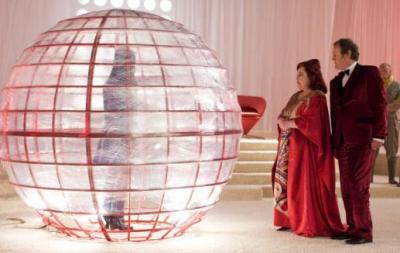
Syfy's Alice is a colorful and explosive re-imagining of the Lewis Carroll books, "Alice's Adventures in Wonderland" and "Through the Looking-Glass," in which writer/director Nick Willing creates a modern-day story of Alice Hamilton (Caterina Scorsone). When Alice -- now a martial arts instructor -- follows her boyfriend's abductors into a looking glass, she ends up in a whole new universe. She quickly finds strong allies in Hatter and the White Knight, but most contend against even stronger foes like the Queen of Hearts and try to find her way back home.
This four-hour miniseries premieres on Sunday, December 6th from 9-11pm ET/PT and concludes on Monday, December 7th from 9-11pm ET/PT. If you want to see some behind-the-scenes footage and a few clips of cast interviews, just scroll to the bottom of the post and watch the embedded video.
To prepare you for the premiere, TV Tango participated in a Q&A Session with the star Caterina Scorsone and the writer/director Nick Willing. Here's what they had to say about this two-night event:
Q&A with Caterina Scorsone
| Canadian-born Caterina Scorsone began her career at the age of 8 with a regular spot on the CBC children's show Mr. Dressup. She continued playing characters in various productions until she landed consecutive leading roles as Michelle Parker in the Canadian drama Power Play and as Jess Mastriani in Lifetime's 1-800-Missing. She recently appeared in multiple episodes of the Starz series Crash with Dennis Hopper and was the lead in the pilot "Nylon" with Elisha Cuthbert. |
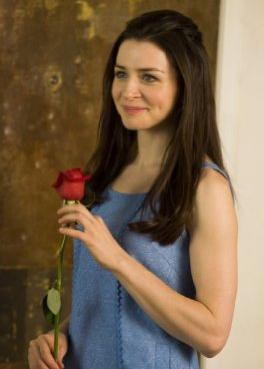 |
What attracted you to the role of Alice? Caterina Scorsone: Alice in Wonderland is a classic piece of literature and most of us have either read it or seen various adaptations. That's a huge draw initially. And then I was sent Nick's script and it's incredible. Not only does it have all of the classic characters and many of the themes of the book in it, but it's been re-imagined into this fantastic adventure and a kind of journey of self-discovery for the character. That was pretty hard to resist for an actor. |
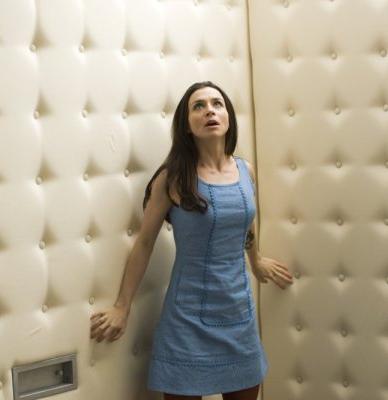 |
What were some of the acting challenges of stepping into the Alice character? CS: The biggest challenges were that we covered just about everything in the script. There's this rainbow of emotions that we kind of were playing with every day in, while at the same time doing gigantic action sequences, fight scenes, horseback riding and CGI. It was really kind of quite a 360 degree workout, physically, dramatically, psychologically. It was a good time. |
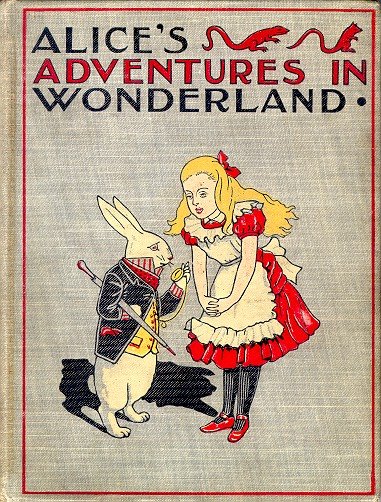 |
Is Alice the same character as in the book? CS: No, not at all. It was quite a project. For one thing, she's much taller than she was in the book. She's grown substantially. What was really great about this script that Nick wrote, which is different from Lewis Carroll's book, is that Alice in this story has a real emotional journey of her own whereas in the book she's kind of this wide-eyed young girl who's walking through this fascinating land. She, herself, isn't terribly fascinating. In this version, the fascinations of the land almost act as a metaphor for the fascinations inside her personality. |
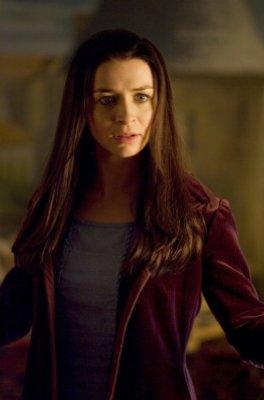 |
Were you happy that Alice didn't have to be blonde? CS: I was surprised, happy and relieved. I remember Nick and I had an initial conversation about it. Essentially her hair is the first thing you see of Alice in the movie, and there's this shot from the back of her head in the beginning of the film. We decided that this is a very, very different movie and it's a very different story. The initial visual of a brunette Alice immediately informs the audience that they're in for a different kind of ride. And so it worked for what we were trying to do. But yes, my hair is so grateful for that coincidence. |
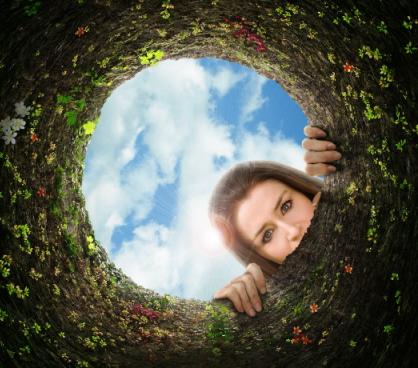 |
In what ways do you see today's world as a wonderland? CS: We talked about why Wonderland would be such a relevant story right now because since 9/11 so much has happened in our world to turn it into this topsy-turvy place that people wouldn't recognize twenty years ago. Politically and economically, so much change has happened in the last little while that I think people are all walking around with wide open eyes like Alice going, what on earth is happening? I think, has made Alice very much a story for our time. |
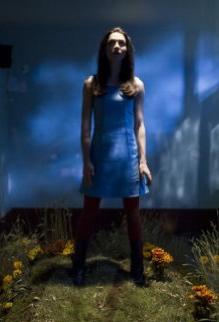 |
Alice is smart and feisty and strong. She starts off as the rescuer instead of the damsel in distress, and she's still permitted to enjoy a love interest or two. What was it like to play such a multi-faceted version of Alice? CS: It was a pleasure. The moment I got the script, I read it in one sitting and it's quite a long script. But it was a page-turner, and I just couldn't believe it. It just came off the page so easily. You could really imagine yourself having the adventures just reading it. When I got to the set, I started realizing how passionate Nick was about the character and about her journey, and about making sure that we gave the character the dignity of being multi-faceted. You don't often, especially as an actress, have an opportunity to play a role where the whole range of the humanity of the person is explored. |
Q&A with Director Nick Willing
| Nick Willing, the son of Portuguese-born painter Paula Rego and English artist Victor Willing, graduated in 1982 from the prestigious National Film and Television School in Beaconsfield, London. After graduation, he made an animated concert film for the pop band The Tourists, leading to a string of music videos for bands such as the Eurythmics, Bob Geldof, Swing Out Sister, P.I.L, Debbie Gibson, and Nik Kershaw. While making music videos, Willing was also writing screenplays, including his 1997 adaptation of Steve Szilagi's novel "Photographing Fairies." Since then, Willing has reinvigorated the miniseries genre as director of NBC's Emmy-Award-winning Alice in Wonderland in 1999, NBC's two-time Emmy-nominee Jason and the Argonauts in 2000, Sci Fi's Emmy-Award-winning Tin Man in 2007, and now Syfy's Alice. |
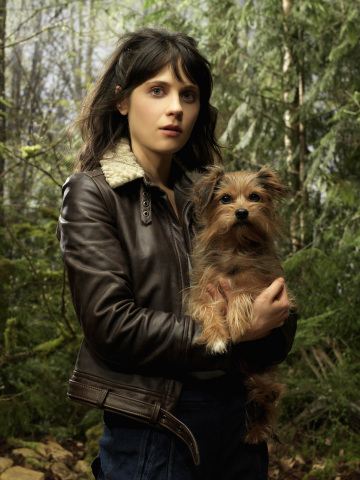 |
You made Tin Man for Syfy a couple of years ago. How did Alice come about? Nick Willing: I had already made a version of Alice in Wonderland in 1999 for NBC which was very well received with Whoopi Goldberg, Marty Short, Gene Wilder, Peter Ustinov, Ben Kingsley and many, many other famous stars. I had quite a rough time trying to translate that book into a movie. The thing about Alice in Wonderland is that there isn't a particular strong classic film story in there. It's a series of vignettes, of poetry and so on. So RHI called me and said, listen, try and do it again, because you had such a hard time with it. What if you did your own kind of groovy version of it because it's ten years since we did the last one? Why don't we do it again? It was kind of that experiment. We felt that we had discovered in Tin Man a new way of reinventing, re-imagining the classics, and we wanted to take another classic that was fantasy-based. I took a little bit of persuading; like ten minutes, and then started writing. And Syfy jumped on board pretty much immediately. They were very excited about it from the start. |
 |
What were some of the challenges you faced? NW: The most difficult thing was finding Alice. I must have seen 500 actresses for the role of Alice, both in America, Canada, and the U.K. At one point we even thought of casting an English actress because she was so hard to find. But in the end we found the perfect Alice, Caterina Scorsone. |
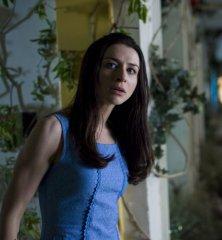 |
How much did you refer back to the original book? Were there things that you deliberately wanted not to include in this film from the book? NW: When I first wrote this, it was hugely long. It was six hour - I overwrote. I wanted to include everything that I could. Writing is one of those funny things where sometimes the first idea is the best idea and sometimes it's the worst idea. If the book is about a little girl who falls into her unconscious and written in 1860, it was an incredibly modern and exciting theory. But if it's that then, let us make this world or events incredibly psychological and helpful to her in discovering what she needs to discover in order to flourish and become and full and complete person. I would draw on aspects of the book as triggers. The book was an inspiration, and then from there it spawned many things. |
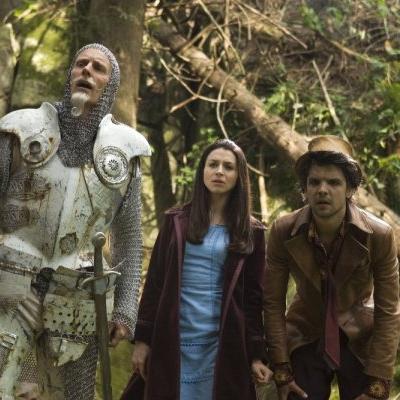 |
Would you say that the key was finding the purpose of the quest? And once you figured that out, did the rest of it come into focus for you? NW: The first thing that tickled my fancy was the idea of imagining Wonderland as it is today, 150 years on from the original. Alice in Wonderland was written in 1850 or so, a long time ago. And I thought, wouldn't it be delicious to imagine a world in the way that we have evolved, also changed? And how would it be today? Perhaps we'd have similar characters but wouldn't they be different? And wouldn't they have similar quests? But maybe they have changed as ours have too. It was an idea of bringing it into modern focus that attracted me. |
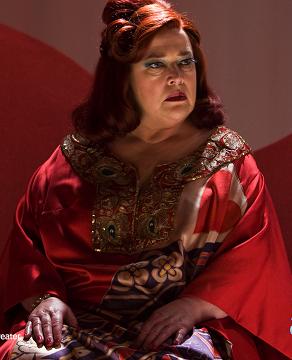 |
There are some great names in the film like Kathy Bates. How you were able to rope her along? NW: Kathy Bates was literally my first choice for the role of the Queen of Hearts. She is, to me, one of the most spectacular actresses in the world and I don't know anyone better to play a vicious character with a huge heart. When I sent her the script she said yes almost immediately. It was one of the easiest things we had in the film. It was incredibly, fantastically easy. Initially, she was a bit tentative about doing the English accent. I couldn't get over the fact that the Queen of Hearts to me had to be English because she's such an iconic English character from literature. So she did, but she did one of the best English voices I've ever heard any American actor do. |
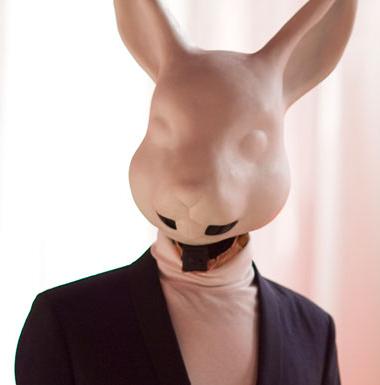 |
In what ways do you see today's world as a wonderland? NW: Wonderland is a place where extraordinary and amazing things happen in the original book but also very dark and frightening things happen. In our world, it is now possible to act in ways which may seem strange and insane but are part of the norm. I do think that one of the things about our world is that we have advanced technology to such a point where we can get what we want to get when we want to get it. We can get somebody on the phone. We can watch a TV program when we want to watch a TV program. And we can enter into worlds of fantasy at the touch of a button. That’s certainly wasn’t possible when Lewis Carroll wrote that book 150 years ago. |
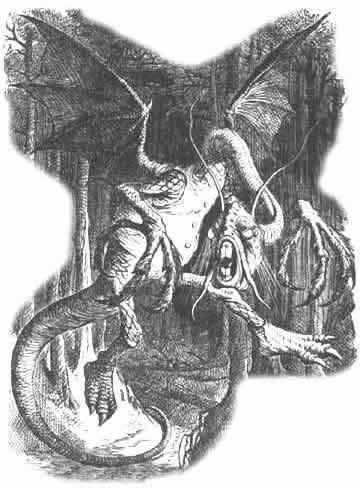 |
What was the most fun aspect of Alice and Through the Looking Glass to give a modern twist? NW: I've never seen a jabberwocky done before. There was a film by Terry Gilliam, but that was years ago and it only had fleeting glimpses of the actual jabberwocky, and I've always wanted, ever since I was a little boy, to make a real jabberwocky. And now technology has caught up with me and we were able to produce this amazing creature with a long neck and a goofy face, that was both funny and terrifying at the same time, which I think is what the jabberwocky is all about. |
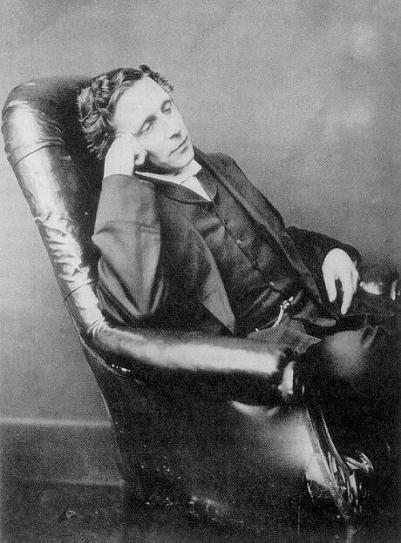 |
Have you basically purged Lewis Carroll from your system at this point, or can we expect and even more outrageous version from you come 2019? NW: To take your answer seriously, I think that one of the things that to me was exciting about this version was that it was so different. And because I'd already done one, I felt liberated from having to do that again, from having to do a faithful adaptation. I took greater risks. I didn't worry about taking great leaps with the imagination and trying something new and different. One of the interesting things about this is that now that I've had this experience, the next time I write a story of this kind, I'm going to take bigger risks. |
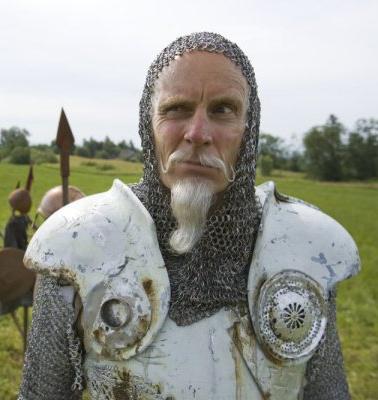 |
You are one of the new successful practitioners of the mini series format these days. Do you find, as opposed to say feature films and smaller television, that the mini series form is actually quite a good one to work in? NW: I think it's one of the best. I really do. I'm not just saying it because I've made a few. I've made a lot but it's taken me a long time to figure out really how to make it work. You get to tell one big sweeping story like you do in a big sweeping epic. But you're given more time to develop the characters and to work in further twists and turns. One of the things that also gets you because it has eight acts within one night. You have to think in terms of big surprises, huge twists, big thriller moments, big sweeping moments of the heart, big romantic scenes and you have to keep telling them over every ten minutes. For a writer that's extremely, extremely exciting in a way that in movies you don't get to do and in episodic television you can't do. |
Abe Fried-Tanzer is a student at New York University majoring in cinema studies and journalism. He makes it his priority each year to see every Oscar-nominated film and watch every new television pilot, and writes reviews and awards predictions on his personal movie and TV blogs.
